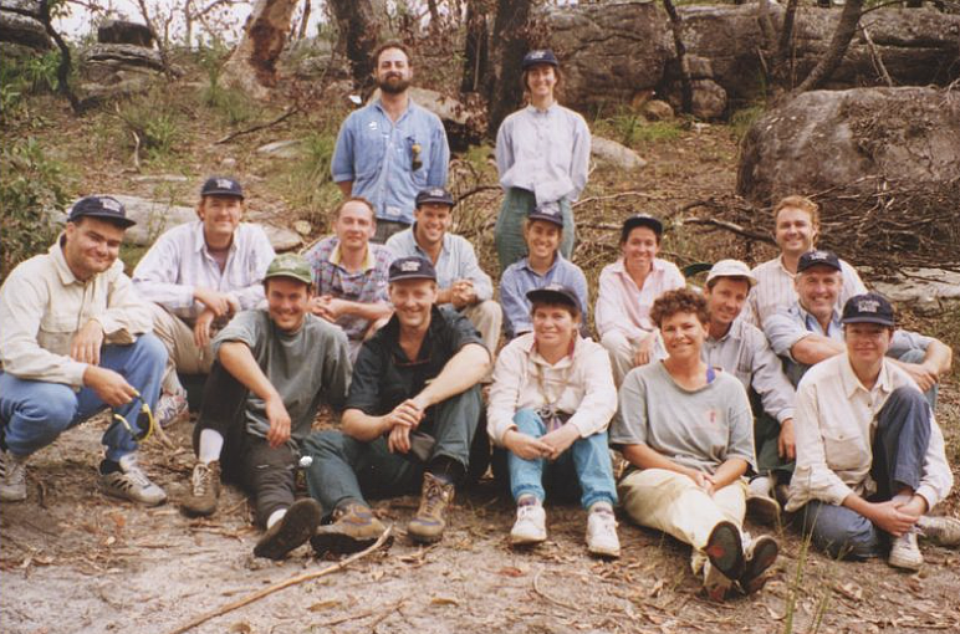
ICDA and BoardPro partnership unlocks digital governance tools for not-for-profits nationwide
Posted on 10 Dec 2025
Adele Stowe-Lindner, Executive Director, Community Directors The Institute of Community Directors…
Posted on 08 Oct 2024
By Greg Thom, journalist, Institute of Community Directors Australia

The not-for-profit sector has joined an alliance of business groups, unions, social services and community organisations in a new campaign to address the nation's skills shortage.

Led by Settlement Services Australia, more than 50 organisations, including the Community Council for Australia, the Australian Council of Social Service (ACOSS), the Brotherhood of St Laurence, Amnesty International and Diversity Council Australia, have thrown their support behind the Activate Australia’s Skills campaign.
The groups have endorsed an open letter to all major political parties calling for urgent action to help people with quality overseas qualifications living in Australia to secure jobs in areas of need such as construction and healthcare.
The alliance said that while a third of Australian occupations are experiencing a shortage of skilled workers, almost half of permanent migrants living in Australia – more than 621,000 people – work well below their skill level.

“We have doctors and electricians driving ride shares. We have engineers stacking shelves. We have nurses and pharmacists cleaning offices.”
Campaign convenor Violet Roumeliotis, the CEO of Settlement Services International (SSI), said Australia’s skills recognition system is in desperate need of modernisation, but the cost-of-living and housing crisis has added a sense of urgency to the situation.
“Hundreds of thousands of Australians are blocked from using overseas qualifications by an endless maze of red tape and hurdles unrelated to their actual skills and experience,” said Roumeliotis.

“Meanwhile, we have communities suffering from skills shortages that mean people can’t access essential services, prices are going up and businesses are put at risk – especially in the outer suburbs and regions.”
The alliance has drafted a blueprint for activating Australia’s overseas-trained workforce which maps out four key changes it wants all parties to commit to ahead of the next federal election:

Roumeliotis said the skills recognition system had become so complicated that the things that matter most – quality and experience – can get lost in a fog of hugely expensive fees, outdated paperwork, and slow, complex processes.
“We have doctors and electricians driving ride shares. We have engineers stacking shelves. We have nurses and pharmacists cleaning offices,” she said.
“The Activate Australia’s Skills Blueprint will get these experienced workers back into their professions: building houses, helping regional communities, caring for our loved ones.
“The diversity and power of the new alliance shows these solutions are popular and common sense. Everyone wins.”
Migrants key to solving IT skills crisis

Posted on 10 Dec 2025
Adele Stowe-Lindner, Executive Director, Community Directors The Institute of Community Directors…

Posted on 10 Dec 2025
The Australia Institute has called on the federal government to force Australian businesses to be…

Posted on 10 Dec 2025
Economic empowerment is essential to enabling recovery, restoring agency and preventing future…
Posted on 10 Dec 2025
A long-time advocate for rough sleepers in northern New South Wales has been named her state’s…

Posted on 10 Dec 2025
What a year 2025 has been, particularly at a national level where the Parliament and politics as we…

Posted on 10 Dec 2025
Anyone working in an organisation knows it: meetings follow one after another at a frantic pace. On…

Posted on 10 Dec 2025
As a qualified yoga instructor who learned the practice in her hometown of Mumbai, Ruhee Meghani…

Posted on 10 Dec 2025
Community Directors trainer Jon Staley knows from first-hand experience the cost of ignoring…

Posted on 10 Dec 2025
Stressed, overwhelmed, exhausted… if you’re on a not-for-profit board and these words sound…

Posted on 10 Dec 2025
The Institute of Community Directors Australia trains over 22,000 people each year, which gives us…

Posted on 09 Dec 2025
The late Sir Vincent Fairfax is remembered as a business leader, a chairman of AMP, and an active…

Posted on 08 Dec 2025
A pioneering welfare effort that helps solo mums into self-employment, a First Nations-led impact…